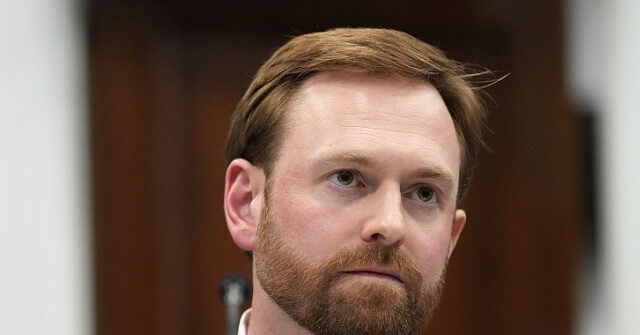Federal Trade Commission (FTC) Chairman Andrew Ferguson on Monday announced that, as part of the FTC’s approval of a merger between two of the largest advertising companies, the advertising giants agreed not to collude or discriminate based on political or ideological viewpoints.
The FTC noted that the two advertising companies were founding members of a cross-industry initiative called GARM through which there was collusion to blacklist center-right outlets such as Breitbart News, Fox News, and the Daily Wire.
Ferguson announced that the FTC had extracted a major victory as part of the agency’s agreement for Omnicom and IPG to merge. The two advertising firms comprise a third of the world’s “Big Six” advertising firms. As part of the merger agreement, the firms said they would not agree to or maintain any practice to discriminate based on political viewpoints.
The FTC chairman wrote that there has been a history of “collusion in the [advertising] market for media-buying services, and the increased potential for collusion post-merger make this a rare instance where the imposition of a behavioral remedy is appropriate.”
He explained:
Specifically, the proposed decision and order prohibits Omnicom and IPG from entering into or maintaining any agreement or practice that would steer advertising dollars away from publishers based on their political or ideological viewpoints. To be sure, coordinated action by advertising agencies against politically disfavored publishers is tantamount to an agreement not to compete on quality—but obtaining such a ruling in litigation could take years. Today’s decision and order eliminates the potential for costly litigation while ensuring that Omnicom and IPG abide by the antitrust laws post-merger. [Emphasis added]
The two firms have offered to stop coordinating in any way that would block advertising dollars from going to publishers based on political viewpoints and agreed to cooperate with the FTC’s investigation into past alleged collusion as well as to submit to regular compliance reviews.
The FTC is already investigating whether a dozen influential advertising advocacy groups violated antitrust law by coordinating boycotts among advertisers based on political viewpoints.
In Ferguson’s Monday statement, he noted that the Global Alliance for Responsible Media (GARM), which he said that Omnicom and IPG founded, once described the right to free speech as “an extreme global interpretation of the US Constitution” and “‘principles of governance’ … from 230 years ago (made by white men exclusively).”
“A Congressional investigation concluded that GARM banded together the most powerful firms in their industry to choke off the vital advertising revenue of those who disagreed with them,” Ferguson argued. GARM has since disbanded.
A 2024 House Judiciary Committee report found that GARM discussed putting center-right outlets such as Breitbart News, Daily Wire, and Fox News on its advertising exclusion lists.
John Montgomery, the then-executive vice president of Global Brand Safety, wrote to Rob Rakowitz, the leader of GARM:
There is an interesting parallel here with Breitbart. Before Breitbart crossed the line and started spouting blatant misinformation, we had long discussions about whether we should include them on our exclusion lists. As much as we hated their ideology and bullshit, we couldn’t really justify blocking them for misguided opinion. We watched them very carefully and it didn’t take long for them to cross the line[.] [Emphasis added]
Ferguson, in his statement, added that GARM aimed to “destroy publishers of content which they disapproved.”
Ferguson said that the conditions of the merger agreement would help “mitigate” the FTC’s concerns about potential future politically motivated collusion.
Ferguson explained, “No one will be forced to have their brand or their ads appear in venues and among content they do not wish. The prohibited behavior is limited to ‘the supreme evil of antitrust’ — collusion with other firms and the creation of pre-made ‘exclusion lists’ to encourage advertisers to join de facto boycotts coordinated by advertising firms and other third parties.”
“Today, Omnicom and IPG have committed themselves to help stop that sort of coordination in their industry. This consent agreement will help mitigate the dangers inherent in a consolidated national advertising market,” Ferguson concluded in his statement. “I hope the conditions imposed on this merger will encourage all advertising firms to adopt similar practices and thereby reduce the temptation to collude to the detriment of their customers, independent journalists, small and independent media companies, consumers, and the American public square.”
Sean Moran is a policy reporter for Breitbart News. Follow him on X @SeanMoran3.


















